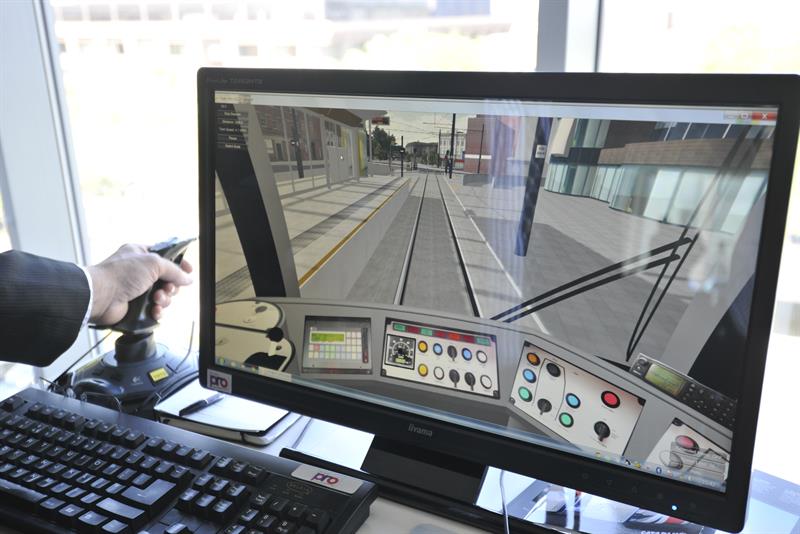In response, we are seeing the rise of Intelligent Mobility (IM) – smarter, greener and more efficient movement of goods and people. Encompassing everything from autonomous vehicles to seamless journey systems that link different forms of transport, IM uses new and emerging technologies to take a different approach to dealing with the traditional challenges that beset modern transport networks, whether that's traffic congestion or longer commuting, from the over, or under use of public transport systems to accidents and safety.
The pressure on maintaining an adequate, functional transport system is growing as urban areas expand and population numbers increase.
As a concept, IM is, however, far more than just about transport. Its supporters argue that it could help to address much wider social trends, such as growing and ageing populations, and provide a platform for 'joined up' modes of transport.
Emerging technologies – and their potential in terms of how they could transform the way we use transport systems – were on display last month at the Imagine Festival held in Milton Keynes, home to the UK's Transport Systems Catapult.
Government backed, the Transport Systems Catapult recently announced that it would be helping to create the world's first 'Intelligent Mobility investment fund', which is intended to raise up to £100million for fast growth technology SMEs in need of early stage capital for technology innovations.
|
According to Dr Paul Zanelli, chief technology officer at the Transport Systems Catapult: "The concept of 'Intelligent Mobility', that was on display at Imagine, is all about transforming the way we move both people and goods. Our work at the Catapult is to try and create the right environment in which companies are able to see that the UK is a place to come and exploit what is a significant global opportunity."
Historically, the provision of transport has tended to be modal, explains Dr Zanelli. "That is going to have to change. At present, users access and use several different transport providers and there's very little 'joined up' thinking when it comes to planning a journey," he suggests.
"We can't keep building new infrastructure and the customer experience is taking centre stage. We need to be able to do things more efficiently, while reducing our carbon footprint and achieve all this at a better cost."
So what steps do we need to take in order to reach this point?
"That's the challenge," Dr Zanelli continues. "How do we get to this future world and position the UK to take advantage of this fast growing market?"
Uncertainty, he believes, is the main issue that needs to be addressed.
"Businesses will need to understand how this new world will work and learn how to react to it," he warns.
IM poses a real challenge to established businesses. In the face of growing urbanisation, younger consumers are no longer looking to buy their own car – the costs of ownership are proving prohibitive – and new services, such as Uber, are transforming the way in which people use road transport.
"Uber is a good example of the risks facing existing companies," says Zanelli. "This is a $40billion business in which drivers use their own cars, identify fares via a smartphone and pay a small fee to the company. It has had a massive global impact and existing business models will need to adapt and change."
|
However, that will not be without its problems. Uber is experiencing with opposition in France from taxi drivers and from legal challenges to the way in which drivers are paid in California.
In Milton Keynes, transport and logistics consultancy Dartt, headed by CEO and founder Brad Cooper, is working with local taxi service Skyline to provide a more efficient and user friendly taxi service via a data mobility map.
"We are using smartphone technology to provide an easy to use, fast to install, straightforward real time solution, making the taxi service more efficient and timely," he explains. "Taxis can gather information on road conditions, transfer that data to the hub and then provide, via an app, accurate timings for customers."
Essentially, the idea behind IM is the more efficient management of planes, trains and automobiles.
"Exactly," says Dr Zanelli. "Transport mobility is all about coming from the user's perspective and that, in turn, is being supported by technological change; whether that is advances in web connectivity, integrated systems, state of the art modelling and visualisation or the emergence of the Internet of Things."
The UK has a growing number of SMEs working in IM, many of whom are looking to provide a more connected and user-friendly experience. Among them is PIE Mapping, which is building a real-time 'roadmap' of Britain. It works by pooling live data from the Highways Agencies, transport operators and local authorities to build personalised route maps.
Another, Scottish based Route Monkey, has developed the world's first electric-vehicle 'scheduling and modelling' system. Being used by BMW and Transport for London, it can carry out 'virtual trials' to predict the impact of electric cars across cities. Mole Solutions is trialling the world's first automated 'freight pipelines' which are intended to take lorries off roads by transporting freight through underground tunnels on driverless capsules.
According to market research, the Intelligent Mobility market could be worth £900billion in 10 years' time, with such sub sectors as data, the IoT, network management, communications services and M-commerce. The Intelligent Mobility investment fund, set up by the Transport Systems Catapult, is looking to pump up to £100m into fast growing technology SMEs, with the intention of giving Britain at least a 10% share of the global market.
The Catapult is looking to partner with a Fund Manager in order to raise early-stage capital for technology innovations tipped to drive and support 'Intelligent Mobility'.
"SMEs with the potential to turn Britain into a global leader in this sector are being hampered by a chronic lack of early-stage investment," suggests Dr Zanelli.
"We need to be able to attract forward-thinking technology investors to help get these ideas to the marketplace over the next 10 to 15 years."
The Catapult has pinpointed a number of cutting edge British innovations with the potential to revolutionise future travel, such as new technologies enabling cities to conduct virtual trials of electric car fleets, to innovations using live weather alerts and mathematical modelling to plot the safest, smoothest journeys across Britain in real-time.
A commercial version of a virtual reality platform – the Omnifinity Omnideck 6 – has been installed at the Catapult's Imovation centre in Milton Keynes, the idea being to encourage companies and research bodies to use it to explore how people will react to future forms of transport.
A 360° treadmill hooked up to a virtual reality (VR) headset and tracker system enables users to experience a virtual world of future transport.
"We can put humans into a virtual world in which they will be able to see driverless pods coming towards them," explains Martin Pett, principal technologist at the Catapult.
Another company, Geve, is using VR to explore the impact of these new forms of transport. By using a VR headset to explore the impact of a new road or rail development, people will be able to see how their homes and local environment will be affected. Meanwhile, engineers can simulate environments in order to solve engineering problems.
Ultimately, says Dr Zanelli, technology has the potential to turn travelling into an efficient, sleek and enjoyable experience. "We can get a lot more out of what we have got just doing things more intelligently and we can make the experience for people massively better," he says.
At last month's Imagine Festival, a range of cutting-edge technologies were on display, including a range of apps intending to transform the travel experience.
Among them was Zipabout, which collates travel schedules and, when combined with social media, is able to provide an intelligent journey planner, warning of possible delays and enabling users to plan their journeys 'intelligently'.
|
Bounce, meanwhile, is working to influence the behaviour of consumers, using its website to encourage them into using more sustainable forms of transport, such as car sharing or using public transport. It uses 'rewards' such as cinema tickets to push people towards using more sustainable forms of transport.
IM is not just about people; it is also about the more efficient movement of freight and for a country in which 95% of imports arrive by sea. The UK is prone to congestion both at its ports and on its rail networks – especially the country's congested west coast.
"When it comes to maritime logistics the better use of data and information to improve efficiency will have a significant impact," suggests Dr Zanelli.
"In the past, it's been about building bigger ports to cope with bigger ships but, perhaps, that is going to have to change. New Japanese designed nuclear powered container ships may not be able to dock in Europe, so we may see the development of more offloading at sea," he suggests. "As a result, we will see the movement of goods around our coasts which could help to regenerate smaller ports and coastal areas. Data will help to make far more efficient use of existing infrastructure."
When it comes to using data to move goods more efficiently, a good example is Amazon.
"Amazon uses data analytics to start shipping product before the orders are received. It can use data to predict demand, rather than simply responding to, and fulfilling, orders," Dr Zanelli explains. "Using data in this way and scaling it up to address the global market will have a significant impact on how and when we move goods around the world. Cost savings could be enormous."
Technology is also helping to transform the rail network. Intelligent signalling, which is now being installed on trains, will enable the more dynamic allocating of resources and enable rail providers to move away from traditional static timetables.
"It is all about improving people's and business' experience of train travel, using technology to make journeys easier, faster, and cheaper and making train stations more intelligent, helping to transform how we use the rail network."
The changes being discussed will need to be incrementally deployed, according to Dr Zanelli.
"In the past, when we talked about transport, it was all about investing in new infrastructure – that's not the case today. Digitisation and new technologies will see new business models based on greater collaboration and integration. Understanding the customer will be paramount in this new world, for example how much of a given type of transport will they require to make their journey from A to B?"
The future is certainly smarter, but will require transport systems to be more user-focused, integrated, efficient and sustainable.








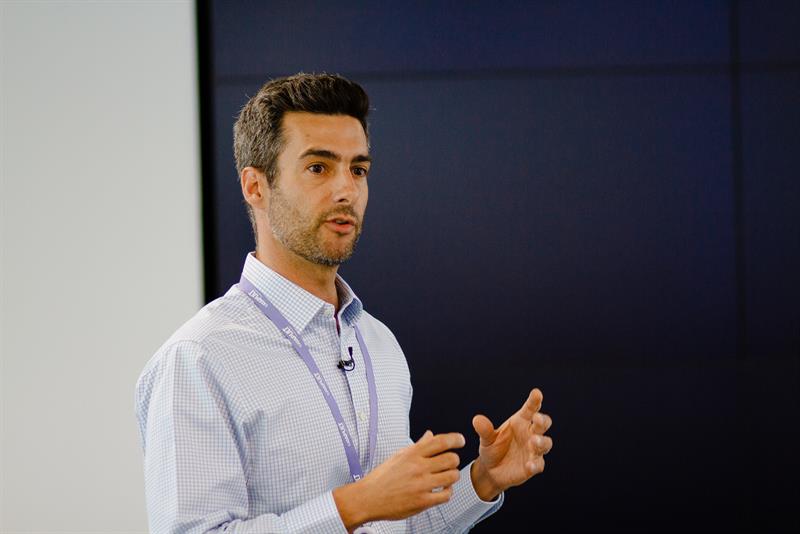 "The concept of 'Intelligent Mobility', that was on display at Imagine, is all about transforming the way we move both people and goods" Dr Paul Zanelli
"The concept of 'Intelligent Mobility', that was on display at Imagine, is all about transforming the way we move both people and goods" Dr Paul Zanelli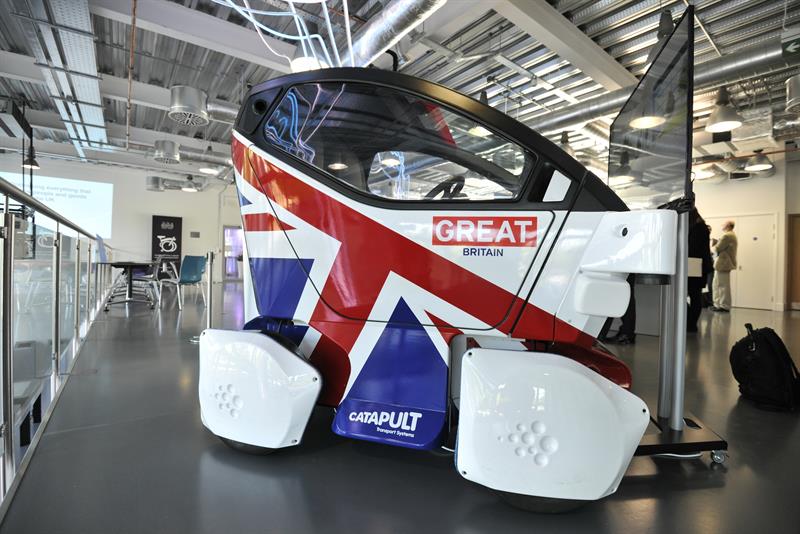 Among the new technology on show at last month's Imagine festival in Milton Keynes - driverless cars (above ) and real-time road map technology
Among the new technology on show at last month's Imagine festival in Milton Keynes - driverless cars (above ) and real-time road map technology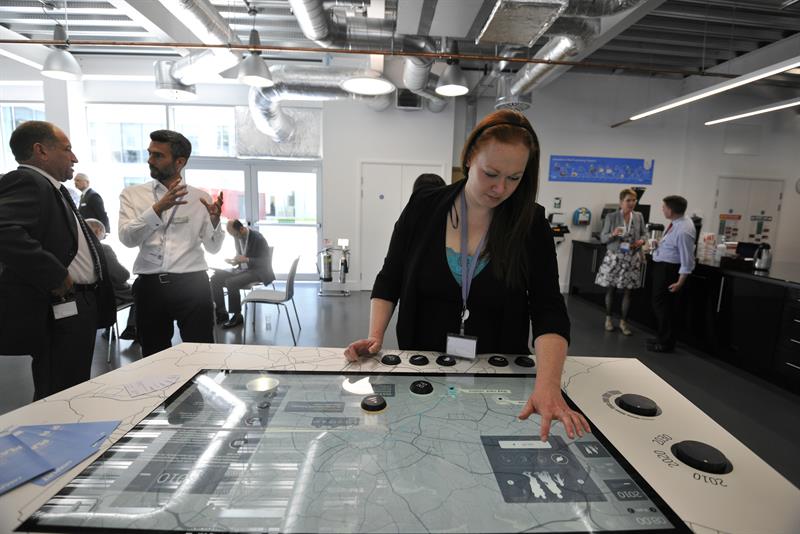
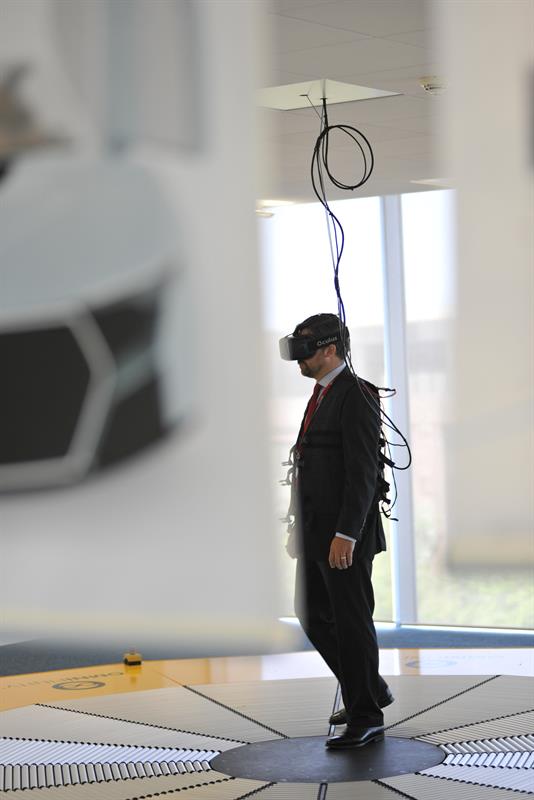 Omnifinity's Omnidesk (above) combines virtual reality and tracker systems to enable users to experience a virtual world of future transport
Omnifinity's Omnidesk (above) combines virtual reality and tracker systems to enable users to experience a virtual world of future transport